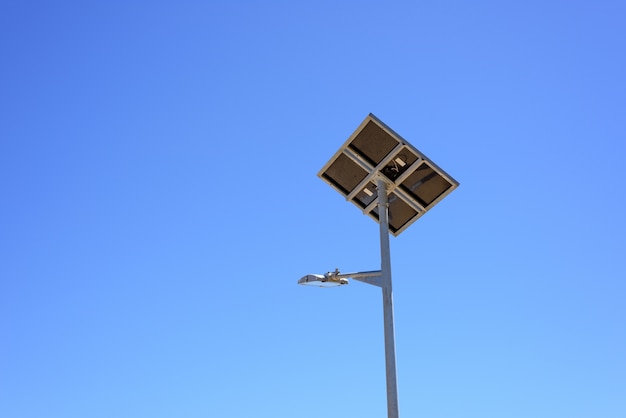The solar energy revolution is here, and it’s powering homes and businesses across the globe. But behind the sleek panels and impressive energy savings lies a crucial, often overlooked component: solar conduit. This essential element plays a vital role in safeguarding your solar investment and ensuring the safe and efficient operation of your system.
While solar panels capture the sun’s energy, it’s the wiring that carries that energy to your home’s electrical panel. And just like any electrical system, solar wiring needs protection from the elements, physical damage, and potential hazards. That’s where solar conduit comes in.
What Exactly is Solar Conduit?
Simply put, the solar conduit is a protective tubing system that encases the electrical wiring of your solar panel system. It acts as a shield, preventing damage and ensuring the longevity and safety of your solar investment.
Think of it as the armour for your solar wiring. It’s designed to withstand harsh weather conditions, including extreme temperatures, UV radiation, rain, snow, and even physical impacts. Without it, your solar wiring would be vulnerable to:
- Weather Damage: Exposure to the elements can cause the wiring to deteriorate, leading to short circuits and system failures.
- Rodent Attacks: Squirrels, rats, and other rodents love to chew on wires, creating a significant fire hazard.
- Physical Damage: Accidental impacts from tools, branches, or even foot traffic can damage exposed wiring.
- Electrical Hazards: Unprotected wiring poses a risk of electric shock, especially in wet conditions.
Types of Solar Conduit:
Choosing the right type of solar conduit is crucial for optimal performance and safety. Here are some common types:
- Electrical Metallic Tubing (EMT): Also known as a thin-wall conduit, EMT is a rigid steel conduit that provides excellent protection and is relatively easy to install. It’s suitable for both indoor and outdoor applications.
- Rigid Metal Conduit (RMC): This is the heaviest and most robust type of conduit, offering maximum protection against physical damage and harsh environments. It’s often used in industrial settings and areas prone to extreme weather.
- Electrical Nonmetallic Tubing (ENT): This flexible, non-metallic conduit is lightweight and easy to install. It’s commonly used for indoor applications and areas where flexibility is required.
- Liquidtight Flexible Metal Conduit (LFMC): This flexible metal conduit is coated with a waterproof plastic covering, making it ideal for wet locations and outdoor applications.
- Liquidtight Flexible Nonmetallic Conduit (LFNC): Similar to LFMC, this non-metallic conduit is also waterproof and flexible, providing excellent protection in wet environments.
Why is Solar Conduit Important?
Beyond protecting your wiring, solar conduit offers several key benefits:
- Enhanced Safety: By preventing damage and electrical hazards, solar conduit significantly improves the safety of your solar system.
- Increased System Longevity: Protecting your wiring from the elements and physical damage extends the lifespan of your solar system.
- Improved System Performance: Damaged wiring can lead to power loss and reduced system efficiency. Solar conduit ensures optimal performance by maintaining the integrity of your wiring.
- Code Compliance: Many building codes and electrical regulations require the use of conduits for solar installations.
- Aesthetic Appeal: Conduit can help organize and conceal wiring, creating a cleaner and more professional-looking installation.
- Future Upgrades: Conduit allows for easier future upgrades or repairs to the system. Wires can be pulled out and new wires added without major installation changes.
Installation Considerations:
Proper installation of solar conduits is essential for its effectiveness. Here are some key considerations:
- Professional Installation: It’s highly recommended to hire a qualified electrician or solar installer to install your conduit system. They have the expertise to ensure proper installation and code compliance.
- Conduit Sizing: The size of the conduit must be appropriate for the number and size of wires being installed.
- Weatherproofing: Outdoor conduit installations must be properly weatherproofed to prevent water damage.
- Secure Mounting: The conduit must be securely mounted to prevent movement and damage.
- Proper Bending and Routing: The conduit must be properly bent and routed to avoid sharp bends and kinks that can damage wiring.
- Grounding: Proper grounding of the conduit system is essential for safety.
Choosing the Right Conduit for Your Solar System:
The best type of solar conduit for your system will depend on several factors, including:
- Location: Indoor vs. outdoor installation.
- Climate: Exposure to extreme weather conditions.
- Wiring Requirements: The number and size of wires being installed.
- Building Codes: Local building codes and electrical regulations.
- Budget: Different types of conduit vary in cost.
In conclusion, solar conduit is a crucial component of any solar panel system. It provides essential protection for your wiring, ensures safety, and extends the lifespan of your investment. By understanding the different types of conduit and their benefits, you can make an informed decision and ensure the optimal performance and longevity of your solar energy system. Remember to always consult with a qualified professional for proper installation and guidance.








